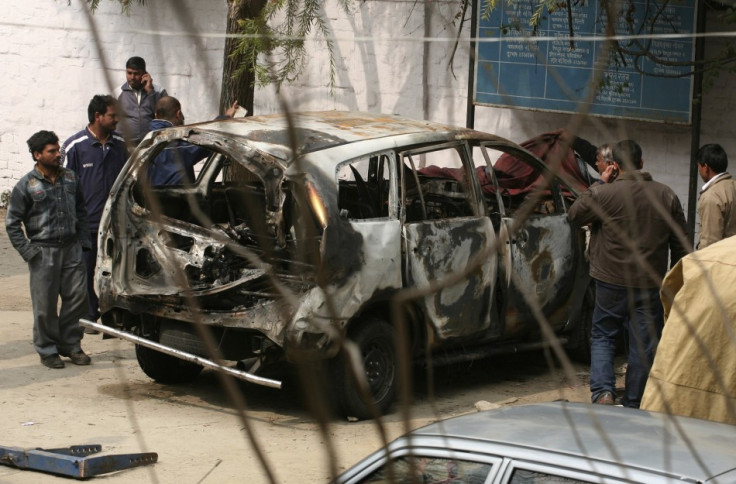Israel Warns of ‘Wave of Terror’ after New Delhi Embassy Car Attack

As Indian police are still investigating the bombing of an Israeli diplomatic car in New Delhi, Israel has reiterated fears that more terror attacks are on the way.
A motorcycle assailant attached a bomb to an Israeli diplomatic car in New Delhi, setting the vehicle ablaze and injuring four people on 13 February.
On the same day, Georgian authorities foiled a bombing in Tbilisi that also targeted Israeli diplomats.
Israeli authorities have now sent a team of forensic scientists to work with Indian investigators.
"There is day-to-day cooperation between Israeli authorities and Indian security authorities. Very close cooperation," Israeli Embassy spokesman David Goldfarb said.
Officials have said they fear the attacks will be followed by more terror plots.
"No doubt we face a wave of terror," Cabinet Minister Dan Meridor told Israel Radio on Tuesday February 14.
Witnesses of the attack in India said they saw one person on a motorcycle getting closer to the diplomatic minivan as it was stopped at a red light.
The same person then allegedly attached a bomb to the rear of the minivan, speeding off seconds before the device exploded.
The attacks both in India and Georgia were reminiscent of the killing of the recent Iranian nuclear scientists that Tehran has blamed on Israel.
Commenting on the New Delhi car bombing Indian Home Minister Palaniappan Chidambaram said it appeared to be a terror attack carried out by a "very well-trained person."
Chindambaram refused to comment on who might be behind the attacks.
"At the moment, I am not pointing a finger at any particular group or any particular organization. But whoever did it, we condemn it in the strongest terms," he said.
Israeli officials blamed the bomb attack in India and the foiled plot in Georgia on Iran, hinting it might have worked in cooperation with Hezbollah.
Iran has denied responsibility for the attacks.
© Copyright IBTimes 2024. All rights reserved.





